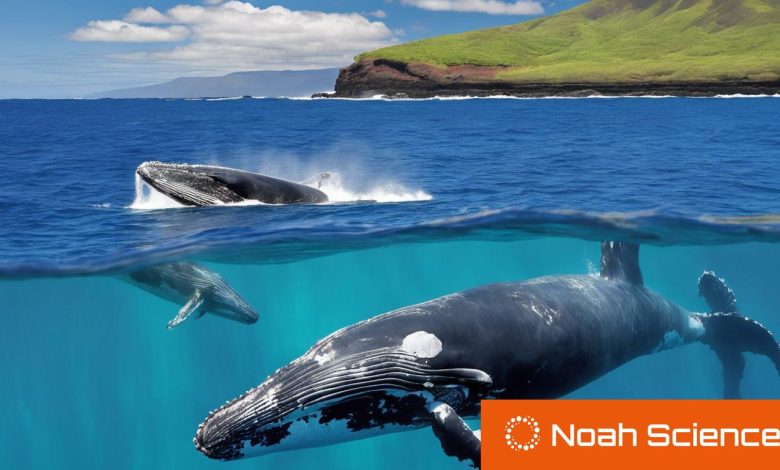Unprecedented observation of same-sex behavior in humpback whales

For the first time, researchers have documented two male humpback whales engaging in sexual activity, a revelation that challenges old assumptions and highlights the complexities of marine life amid environmental threats.
In a groundbreaking development in marine biology, researchers have observed two male humpback whales engaging in sexual intercourse off the coast of Maui, Hawaii. This incident, captured by photographers Lyle Krannichfeld and Brandi Romano, marks the first recorded instance of such behavior in humpback whales, challenging prior perceptions of their mating habits. Detailed in a study by the Pacific Whale Foundation and published in the Marine Mammal Science journal, the occurrence provides significant insights into the complex behaviors of these marine giants. Researchers speculate the unusual behavior might be a response to external factors, such as health issues stemming from a possible ship collision.
This discovery comes alongside concerns regarding the decline in humpback whale populations in the North Pacific, attributed to the impacts of marine heatwaves. A study published by the Royal Society Open Science, led by biologist Ted Cheeseman from Southern Cross University, revealed a 20% decrease in humpback whale numbers from 2013 to 2021, correlating with a severe marine heatwave that disrupted the ocean’s nutritional chain. This phenomenon was exemplified by the case of Festus, a humpback whale known in Glacier Bay national park for over four decades, found dead in 2016 from starvation linked to the heatwave.
Despite a recovery in humpback whale populations following the ban on commercial whaling in 1982, environmental stressors like climate change pose ongoing threats to their survival. Researchers emphasize the importance of continuous monitoring and conservation efforts to understand and mitigate these effects.
The observations of same-sex behavior in humpback whales and the challenges faced from environmental changes underscore the complexity of marine life and the critical need for ongoing research and conservation to safeguard these majestic creatures and their ecosystems.








